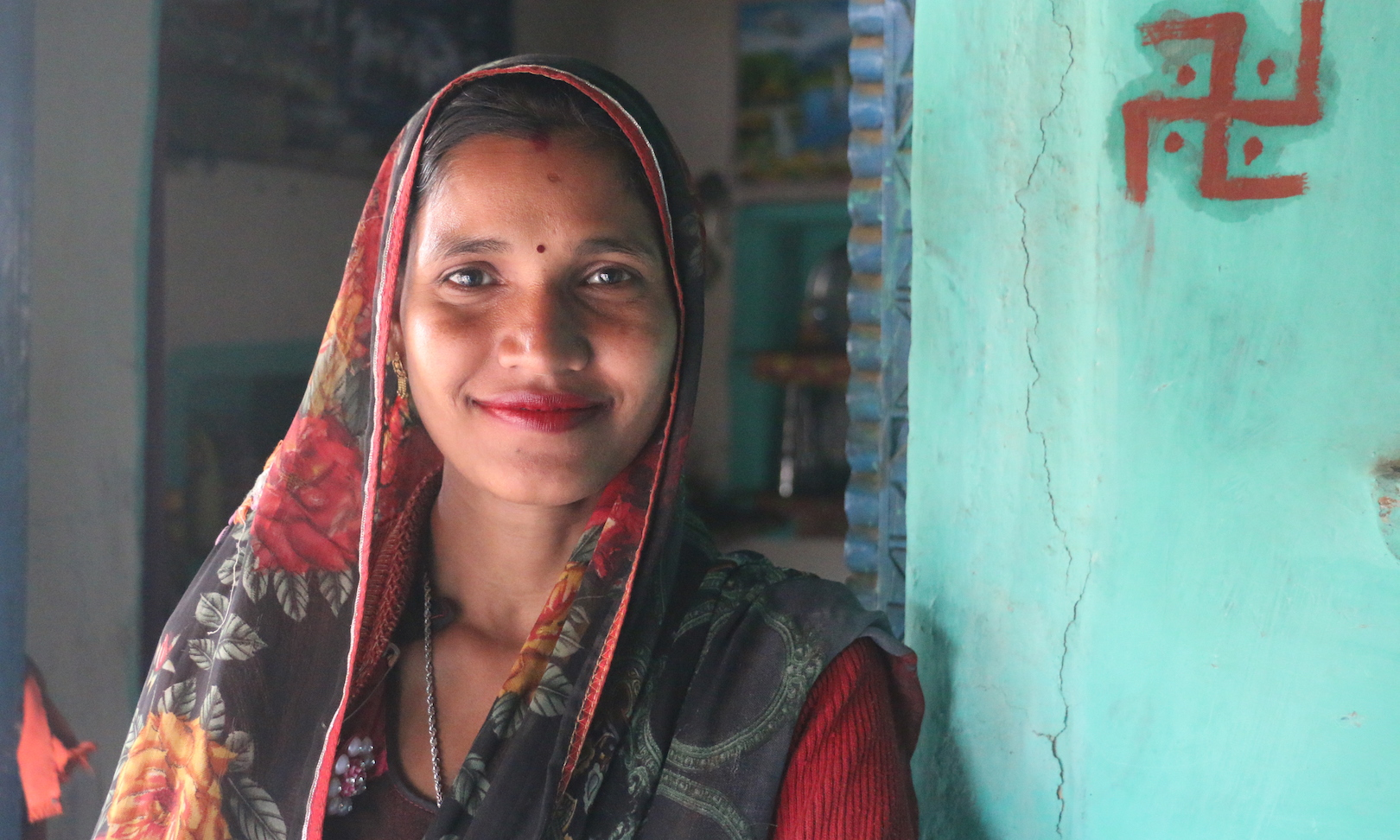Ushering in A Wave of Transformation

Just a day before we met Archana at her house in Sanwadi village in Sheopur district of MP, her village had witnessed a spectacle of an event that the village residents were still talking about amidst peals of laughter.
“Yesterday, the men of our village got together and went from shop to shop collecting the pudia and burnt them in a big bonfire,” says the 26-year-old. By pudia Archana is referring to the small sachets of tobacco readily available at most grocery stores in the region.
Behind the perceived humour of the event, however, lies a sombre reality.
“Alcoholism and addiction to tobacco products are the biggest problems of our community, and it has been so for a very long time,” says Archana.
“This time, the men were propelled by the initiatives of the women to bring about radical changes in the health of our families. I am thankful for the Sashakt project and our trainers for bringing this initiative to our village,” she adds.
Madhya Pradesh – and Sheopur district in particular – ranks amongst lowest in the country across most of the health indicators, with malnourishment among children being the primary cause of concern. According to several health reports, Madhya Pradesh accounts for the second highest malnutrition rate, highest infant mortality rate and the second highest under-5 mortality rate in India. A recent National Family Health Survey report indicates that 55% children in Sheopur are malnourished.
It is in this backdrop that Sashakt project was launched in Sheopur district, with an aim to provide vital information to the village residents to improve the health of their families and gain access to various government schemes which they can benefit from.
“The reasons for the current state of affairs became evident to us while conducting the baseline survey in the villages of the district,” says HPPI’s Veer Singh Yadav, Project Manager,
Sashakt.
“We could see that the village residents drink water straight from the open ponds without boiling it or even proper filtration. The water used for washing clothes is also used for washing the dishes and drinking. It was then no surprise that public health was a pressing issue in this region,” he says.
Project Sashakt filled the crucial information gap for the village residents and through a series of training sessions, provided information on health-related issues, along with ways to augment their family income; entrenched poverty being a pivotal contributing factor to the severe acute malnutrition among the children.

“In our villages rice and potatoes are the most commonly consumed food. Very rarely, if at all, people eat green vegetables here. During the training, the trainer didi informed us about the importance of eating green, leafy vegetables and how these simple changes in diet can go a long way in improving our health,” says Archana.
Along with introducing dietary changes, the village residents were also informed about the importance of boiling water before drinking and keeping their house and surroundings clean.
“I have now become a big source of torture for the most residents of our village. I kept pestering our village Asha worker who didn’t have a toilet in her house and didn’t stop till she got one constructed,” says Archana, with a proud smile.
“I believe if even one woman can take the lead, the others soon follow, and I can only thank the training I received under the project for this transformation,” she adds.
The transformation in Archana’s village is clearly also beginning to motivate the menfolk into action in a region where such community initiatives are becoming increasingly crucial.
